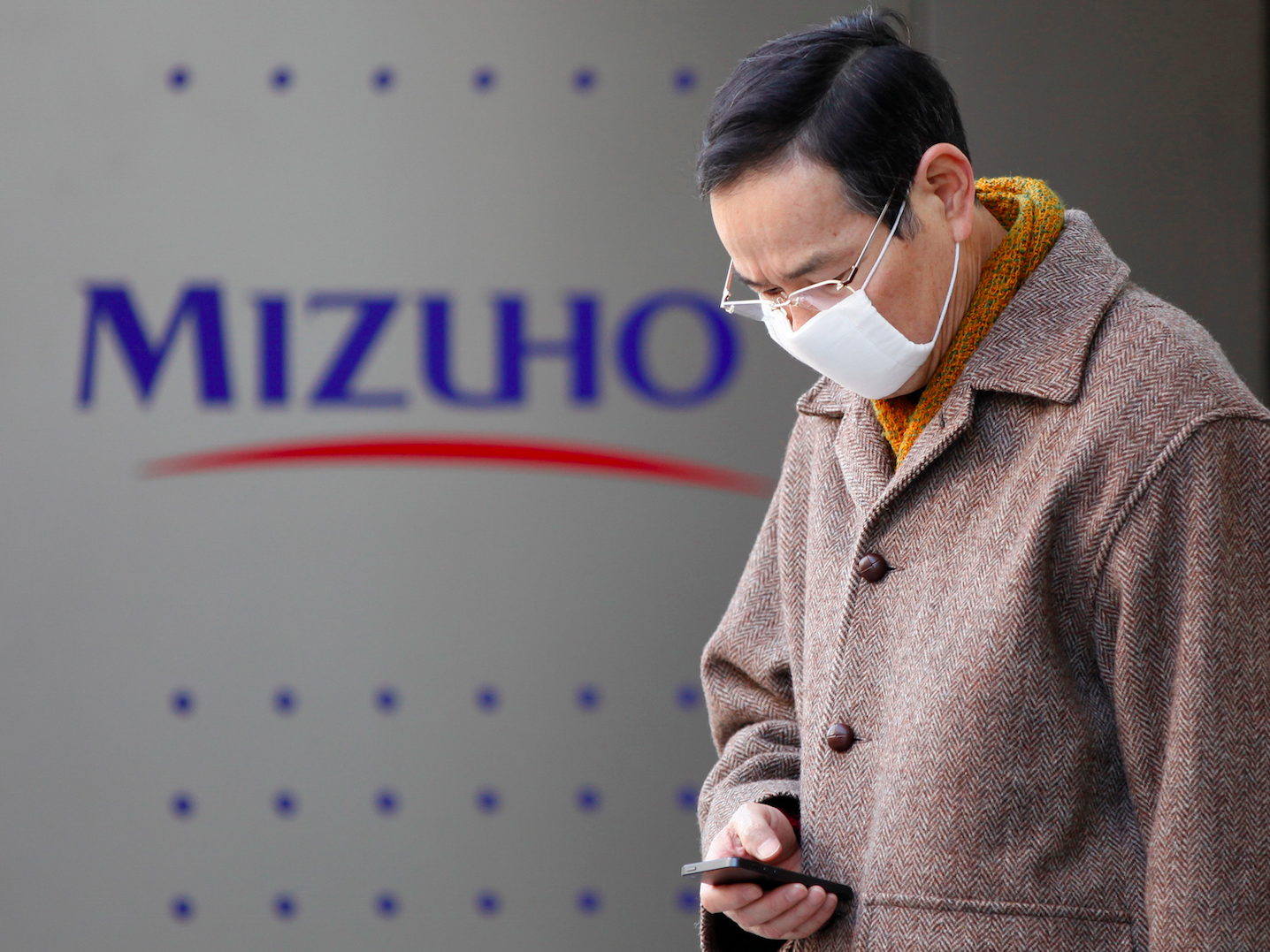
The CEO of Japan’s third-largest lender says economic conditions are worse today than they were during the emblematic event that triggered a global financial crash in 2008 and led to a devastating global recession.
“The economic situation is worse now than it was during the Lehman Brothers collapse,” Chief Executive Tatsufumi Sakai said in an interview.

Access deeper industry intelligence
Experience unmatched clarity with a single platform that combines unique data, AI, and human expertise.
“I have no doubt it will get far worse ahead,” he added.
Lehman Brothers, the giant US investment bank, went bust on 15 September 2008. This was the moment when global financial stress turned into a full-blown international emergency.
The catastrophic system-wide meltdown it caused was subsequently described as “the worst financial crisis in global history,” by former Federal Reserve chairman Ben Bernanke.
Mizuho faces £120bn in risky financing requests
Mizuho Financial Group has reported that demand for coronavirus-related loans has reached 17 trillion yen (£121bn) since the outbreak.

US Tariffs are shifting - will you react or anticipate?
Don’t let policy changes catch you off guard. Stay proactive with real-time data and expert analysis.
By GlobalDataOne of the three so-called Japanese megabanks, Mizuho said it has so far extended 10 trillion yen in loans and credit lines from requests it deemed virus-related.
The bank said it expected further increases in loan requests as companies continue struggling to revive their operations.
Data from Tokyo Shoko Research indicate that 225 companies have gone bankrupt in Japan since the first covid-19 cases there were reported in January.
“As clients face liquidity problems, we will help with financing as appropriate,” Sakai said.
Piling on loads of riskier loans
Mizuho is in discussion with many of its corporate clients who are seeking financing via subordinated loans and purchases of preferred shares totalling more than 100 billion yen (£733m).
The bank is ready to provide several times more, the CEO said.
He added that Mizuho expects more of these so-called mezzanine financing, including subordinated debt and preferred stocks, as companies struggle to bolster their balance sheets.
The danger for lenders is that subordinated credit and preferred shares are riskier than senior loans because they have less chance of recouping the money in case of default.
Lehman Brothers’ bankruptcy, the largest in U.S. history, occurred because the bank invested heavily in risky mortgages just as housing prices started falling.







